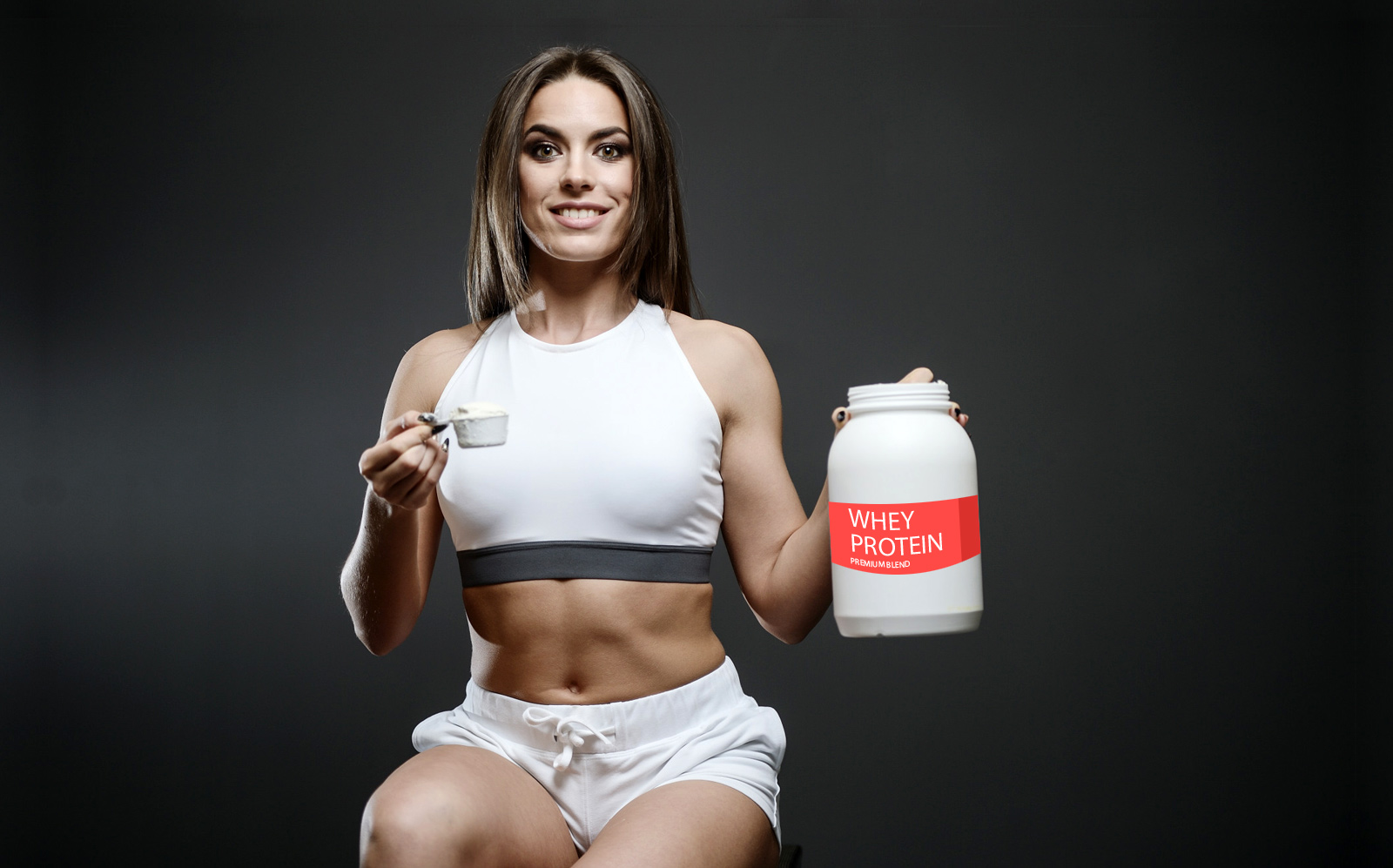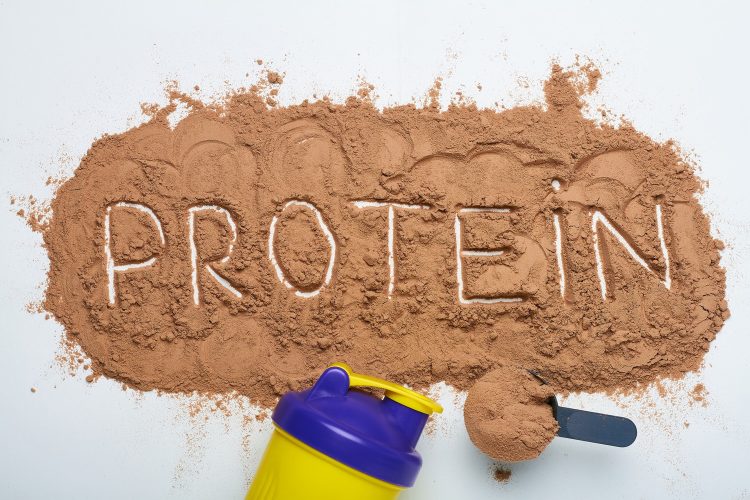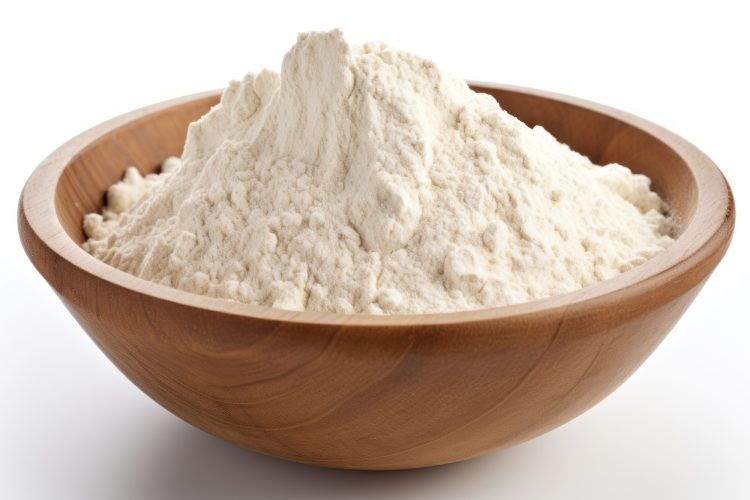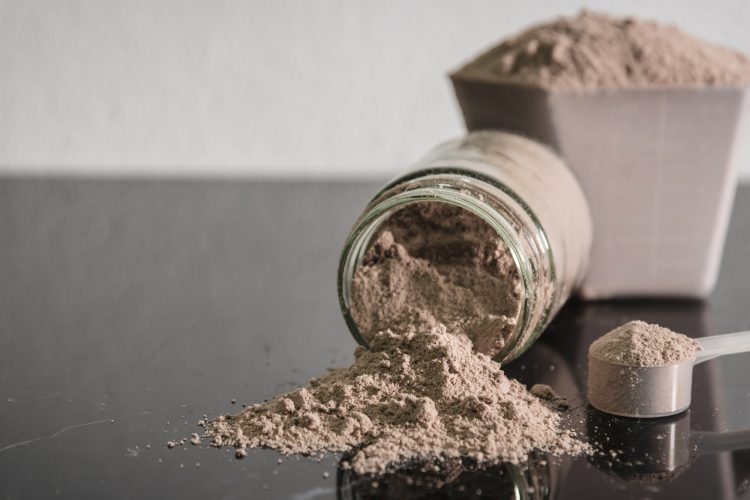Protein powder is the most popular sports nutrition supplement. From recreational lifters to professional athletes, its popularity is undeniable. Protein supplements come in different flavors and forms — whey, casein, plant-based, egg, and beef.
Protein is the building block of muscle. Consuming a moderate amount of protein at each meal can stimulate protein synthesis, which can help build and maintain muscle tissue, promote weight loss in overweight individuals, and improve bone health, appetite, and cardiometabolic risk factors. (1)
As a veteran personal trainer, I have been using protein supplements for over 15 years. I’ve seen firsthand the power of protein supplementation. When my protein intake drops below 1.6-2.2 grams per kilogram of body weight, my physique and strength noticeably suffer.
In this article, I discuss the six lesser-known facts about protein powders and how they can affect your gains. We will also go over its origins and some unusual uses beyond muscle building. So, sit tight and read on.
Fact 1: Not All Protein Powders Are Created Equal
Supermarket shelves are stocked with what seems like a million different protein powder options. The crazy part is that none of these supplements are the exact same.
Here are the most common types of protein powders:
Animal Protein Powders
There are four main types of animal protein powders on the market:
Whey Protein
“Whey protein is a fast-digesting protein source, which means it is quickly absorbed by the body. This is important after a workout when your muscles need repair,” said Dr. Mike Israetel (Ph.D. in Sports Physiology and former professor of Nutrition and Sports Science).
Casein Protein
Like whey, casein is also derived from milk. However, casein clots in the stomach, slowing down digestion and ensuring a steady supply of amino acids for an extended period. Casein protein is usually consumed before bed or when you are expecting a big gap between meals.
Israetel recommends combining whey protein with casein protein or a higher fat source when you are not consuming it after a workout to slow down its digestion and ensure your body has a constant supply of amino acids throughout the day.
Egg and Beef Protein
Egg and beef protein are an excellent option for folks who are lactose intolerant but don’t want to go the vegan route. Their unique amino acid profile reduces the risk of nutritional deficiencies. Some people also find that egg and beef protein are easier to digest than whey or casein. Furthermore, beef protein powders often contain collagen and other peptides, which can improve joint and connective tissue health.
Plant-Based Protein Powders
The three main types of vegan proteins include:
Soy Protein
Soy is one of the few plant-based foods to be considered a complete protein, meaning it has all nine essential amino acids in similar amounts. It is a great alternative for people switching to a vegan diet.
Pea and Hemp Protein
Most plant-based protein powders contain multiple plant sources to ensure a complete amino acid profile. Vegan proteins pack a generous amount of fiber and healthy acids, which can help you achieve your fitness goals.
You must consider multiple factors, including your diet, goals, taste and texture preferences, budget, and sensitivities, before you pick a protein powder. However, once you find a product that checks all the right boxes, you should settle on it for the best results.
Fact 2: Protein Powders are ‘Only for Athletes’ is a Myth
Contrary to what most people think, protein powders are not reserved for athletes looking to improve their physique aesthetics. Protein supplements can plug the gaps in the diets of people who cannot meet their daily protein goals through whole foods.
Below are a few advantages of adding protein supps to your diet regime:
- Weight Management: Protein can keep you feeling full for longer, which can reduce the risk of starving and eating junk during the day. It can be a game changer for people aiming to lose weight.
- Recovery Booster: Protein can help recover from a workout — or surgery. If you’ve been feeling beat up and exhausted lately due to physical exertion, a protein supplement can come in handy.
- Convenience: Let’s be honest, meeting your daily protein goal can be difficult. A scoop of protein powder can be a convenient way of achieving your recommended daily protein intake target.
Fact 3: Watch Out For Hidden Ingredients in Protein Powders
Protein powders come in different forms, sizes, and flavors. You must read each product’s ingredient label to ensure there are no hidden surprises. Here are things you must keep an eye out for:
Artificial Sweeteners
Many brands use non-nutritive sweeteners to make their supplements more palatable. While artificial sweeteners do not add to your calorie bottom line, an extended use can lead to cravings and gut health issues. Favor products with little to no added sweeteners.
Fillers
Some companies spike their products with fillers to increase the quantity. Look out for ingredients like maltodextrin, xanthan gum, or other cheap alternatives. They have no nutritional benefits and can wreak havoc on your gut microbiome.
Dicey Flavorings
Sports nutrition companies spend a fortune finding ways to make not-so-healthy ingredients seem like the fountain of youth. Read the label to find chemicals that look mysterious. Do your own research to determine if it is a value add.
The supplement industry is loaded with unregulated jargon. Don’t fall for fancy terms like “all-natural,” “low-carb,” or “clean.” Ensure that all the ingredients in the product serve a purpose.
Pro Tip: A protein supplement should ideally have a short and crisp ingredient list. Plant-based proteins are usually less processed and easier to digest.
Fact 4: More Protein Isn’t Always Better
While most protein supplements on the market offer 20-25 grams of protein per serving, some newer products try to set themselves apart by offering 50 grams per serving.
Remember, just because you are consuming a higher amount of protein doesn’t mean your body will absorb it. The bioavailability of the protein also plays a major role here. Most reputed brands include digestive enzymes in their protein supplements to ensure maximum absorbability. Ensure that your preferred brand has that, too.
The Recommended Dietary Allowance (RDA) for protein is 0.8 grams of protein per kilogram of body weight (0.36 grams per pound). Once you go above this number, you should ensure you’re eating enough fiber to get the best bang for your buck from protein supplements.
Protein Overconsumption Side Effects:
Below are the cons of consuming too much protein:
- Gut Health: Excessive protein can cause gas, bloating, and changes in bowel habits. Protein farts are for real.
- Kidney Issues: Eating too much protein can make your kidneys work overtime, which can be a deal breaker for people with renal issues.
- Weight Gain: Going overboard with protein can put you in a calorie surplus, which can lead to weight gain in the long run.
You must balance protein intake with other macronutrients (carbs and fats) and micronutrients to ensure balanced development and overall health.
People with pre-existing medical conditions should consult their healthcare provider before starting a new supplement, nutrition, or training routine.
Find your daily protein intake here.
Fact 5: They Might Affect Your Meds
I cannot stress this enough: People dealing with health issues should get their doctor’s clearance before taking any new supplement.
Protein supplements can work against your prescription medicines in some cases. Consulting your healthcare provider can help you avoid any unwanted reactions.
Here are the things you must keep an eye out for:
- Absorption Issues: Certain medicines need time to work their magic. Some protein powders contain calcium or fiber, which can bind to those meds and diminish their effects.
- Enzyme Overload: The liver is responsible for breaking down medicines and protein powder. Consuming too much protein can overwhelm the liver and diminish the medicine’s effect.
Never take a protein powder without consulting a medical professional if you’re using antibiotics or blood thinners. The risk is not worth the reward here.
Fact 6: Quality Protein Powders Aren’t Cheap
It’s no secret that quality protein powders can cost an arm and a leg. Some protein supps are so expensive that they make you question your lifestyle choices.
That said, you get what you pay for.
Cheaper whey protein supps usually contain a higher amount of artificial sweeteners and fillers. They use lower-quality ingredients, which lowers the actual amount of protein you get per serving. On the flip side, more expensive products have top-notch ingredients and include digestive enzymes to maximize absorbability.
Furthermore, product categories like hydro-isolates and isolates cost more than concentrates due to their purity and better digestibility.
More reputable brands also put their products through third-party testing to ensure quality. Sadly, these tests cost big bucks, and brands usually pass on this cost to the customers. Is it worth it, though? Absolutely!
Fact 7: Protein Isn’t a Magic Bullet
Many people believe in an ‘anabolic window,’ which involves eating a high-protein meal within half an hour of a resistance training workout to maximize muscle growth. However, multiple studies have shown that the timing of nutrient intake may not be as important as the total amount consumed throughout the day. (2)
“As long as your pre-workout and post-workout meals are within 4-6 hours of each other, you will be maximizing the anabolic response to training,” said Jeff Nippard, a natural bodybuilder and science-based bodybuilding content creator.
A balanced diet that ensures an optimal micro and macronutrient intake is key for optimal results.
“Strength training along with a moderate protein consumption is essential for maintaining muscle mass and promoting longevity and overall health as we age,” said Dr. Rhonda Patrick (Ph.D. in Biomedical Sciences).
Beyond the Shaker Bottle: Unusual Uses of Protein Powder
Protein powders are an excellent way to refeed your muscles. However, you shouldn’t limit their use to post-workout shakes. Here are other ways you can use them in your routine:
Jack Up Your Meals
Protein powders are incredibly versatile. You can add them to most recipes like oatmeal, pancake batter, or your favorite muffin recipe to boost their protein content and take you closer to your muscle-building goals. Not to mention, most protein powders are delicious and can improve the overall taste of the dish.
Smoothies
Healthy smoothies are a godsend for people with packed schedules. They can act as meal replacements while ensuring you stay on track with your goals (work and fitness).
Are you looking for the best smoothie recipes? Check out these five whole-food smoothies for more nutrients and fiber.
Hair and Skin Health
Some protein supplements contain a generous amount of collagen, which can improve your hair, skin, and nail health. This is another reason why you must ensure you’re getting the right protein supplement for your goals. Do your research while buying a protein supplement, and it will pay dividends in the long term.
History in the Making: The Origins of Protein Powder
Protein powders might come off as a modern invention. However, they have deeper roots than you might have imagined. Here is a crash course on the history of protein powders:
Ancient Origins
The legendary Greek physician Hippocrates recognized protein’s healing abilities and prescribed it as a way to boost the immune system.
The Bodybuilding Boom
Protein powders became irrelevant for a long time. However, they entered the mainstream in the 1950s when one of the foremost bodybuilding nutritionists of the era, Irvin Johnson, lauded its effectiveness. Johnson created one of the first commercial protein powders using eggs.
Joe Weider’s companies took the protein powder boom to the next level with their flashy celebrity endorsements.
Science’s Backing
Science was a little late in catching up to the advancements happening in the bodybuilding world in the 1950s. However, as more scientific proof of their effectiveness became available, protein supplements started flying off the shelves.
Fast forward to today, and protein powders are among the most popular sports nutrition supplements.
Conclusion
Protein supplements are a darling of advanced athletes and a powerful tool for anyone looking to achieve their health and fitness goals.
Protein powders come in all shapes and sizes. You must scrutinize each supp’s ingredient list to ensure you are getting nothing but the best product. Higher-quality protein supplements usually charge a premium. However, you must consider them an investment in your health instead of an expense.
If you have any questions about protein powders, drop them in the comments below, and I’ll be happy to help!
References:
- Arentson-Lantz, E., Clairmont, S., Paddon-Jones, D., Tremblay, A., & Elango, R. (2015). Protein: A nutrient in focus. Applied physiology, nutrition, and metabolism = Physiologie appliquee, nutrition et metabolisme, 40(8), 755–761. https://doi.org/10.1139/apnm-2014-0530
- Aragon AA, Schoenfeld BJ. Nutrient timing revisited: is there a post-exercise anabolic window?. J Int Soc Sports Nutr. 2013;10(1):5. Published 2013 Jan 29. doi:10.1186/1550-2783-10-5















